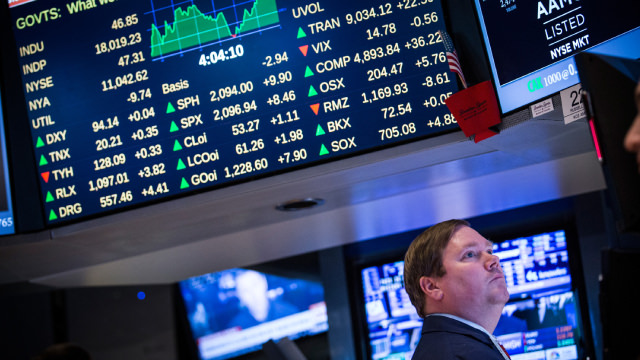
Global X Nasdaq 100 Covered Call ETF (QYLD)

QYLD: Covered Call ETF With AI Catalyst
The Global X Nasdaq 100 Covered Call ETF offers aggressive tech exposure and an overweighting of magnificent 7 stocks that capitalize on AI-driven growth themes and industry tailwinds. The ETF employs a covered call strategy, generating recurring income for investors, while maintaining long positions in leading U.S. tech firms. Magnificent 7 stocks represented 42.7% of the fund's entire investments, which gives the QYLD aggressive exposure to AI growth.

QYLD Vs. JEPQ: 2 Reasons To Go With JEPQ
I now prefer JEPQ over QYLD due to JEPQ's lower fees and its partial, rather than full, use of option overlays. With VIX volatility subdued, QYLD's 100% option overlay caps upside and reduces income potential, making it less attractive in current conditions. JEPQ has outperformed QYLD in total return (64% vs. 36%) over the past 3 years, and I expect this outperformance to continue.

When QYLD Makes Sense And When It Doesn't
QYLD offers high income with a balanced payout approach, but NAV erosion remains a concern over the long term. Total returns from holding QQQ and self-generating income outperform QYLD, even after accounting for withdrawals. QYLD only meaningfully outperforms QQQ during sharp market corrections, not during consolidations or bull markets.

QYLD: The Fund's More Rigid Approach Isn't Working In The Current Market Environment
I am downgrading Global X NASDAQ 100 Covered Call ETF to a sell due to its rigid, outdated covered-call strategy and consistent underperformance versus peers. QYLD's strategy of selling at-the-money calls on 100% of its portfolio each month limits upside and fails to adapt to market volatility. Newer covered-call ETFs like GPIQ and QQQI use more flexible, discretionary strategies, delivering superior total returns and income with similar risk.

QYLD Vs. RYLD: Embrace The Fear With QYLD
Since my last writings, the implied volatilities (IV) for both the NASDAQ and Russell indices have risen to quite extreme levels. This offers favorable pricing for both RYLD and QYLD's use of options. The current IV is even more extreme for QYLD's underlying index, judging by historical records.

QYLD: The 14% Yield Won't Be Enough If The Market Doesn't Rebound Before May
QYLD's single-leg covered call strategy has led to significant underperformance compared to the Nasdaq 100, limiting its potential for capital appreciation. Despite a high yield, QYLD's strategy has resulted in a decade of lost growth, making it less appealing compared to other ETFs with multi-leg strategies. Market volatility and trade uncertainties pose significant risks to QYLD, potentially keeping its share price depressed for an extended period.

QYLD: Why A High Nasdaq 100 Volatility Index Is A Good Thing
I maintain a hold rating on QYLD, noting that high implied volatility in QQQ boosts dividend yields through larger option premiums. QYLD has underperformed the S&P 500, returning 8.3% in the past 15-plus months, but remains a safer play amid market volatility. The Nasdaq 100's high volatility and lower valuations for the Mag 7 suggest QYLD could benefit from its covered call strategy.

QYLD: A Fund That Carries More Risk In The Current Market Environment
The options strategy QYLD uses is not ideal for the kind of more volatile market conditions the indexes are currently seeing. Even though this fund should pay more income in the short term, the principle of this ETF. The managers of this Global X fund do not use discretion with their options strategy, so this ETF will likely have a harder time adapting to more fluid market conditions.

QYLD: The Nasdaq Buy-Write ETF I Tend To Avoid
Buy-write ETFs like Global X NASDAQ 100 Covered Call ETF offer high income but lack capital preservation, making them less ideal compared to JEPQ and GPIQ. What concerns me is not the fund itself, which is transparent and well-structured with a rules-based approach, but rather the strategy behind it. QYLD's 100% covered-call strategy limits its ability to capitalize on Nasdaq-100's growth, leading to long-term capital erosion.

QYLD: Old And Out Of Style
The Global X NASDAQ 100 Covered Call ETF offers a straightforward buy-write strategy, providing high income at the cost of capital gains. QYLD has underperformed the Nasdaq 100 index and newer competing ETFs in terms of total returns and yield, despite its competitive distribution. While QYLD is stable and free of manager risk, newer ETFs like GPIQ and QDTE offer better upside potential and higher returns.

QYLD Vs. SPYI: I Prefer QYLD For 2 Reasons
Since my last writings, the changes in implied volatility are more in favor of SPYI than QYLD. However, I see more important factors that can counterbalance this and thus like QYLD better. In my consideration of these funds, their primary roles are A) to generate high income net of fees, and B) to reduce portfolio's correlation with the overall market.

My QYLD Pair Trade Hasn't Delivered Much, But I Won't Be Switching To QQCC
QYLD and other Global X covered call ETFs offer high yields without relying on obscure companies, making them attractive, especially for those cautious about current market valuations. QYLD and QQCC's monthly options strategy makes them less vulnerable to short-term volatility compared to same-day option expiry ETFs like QDTE. My pair trade of Shorting Nasdaq 100 Futures against QYLD has only delivered a small profit in the past year. However, the combo can still deliver income approaching ~15% if there's a pause in the bull market run.







